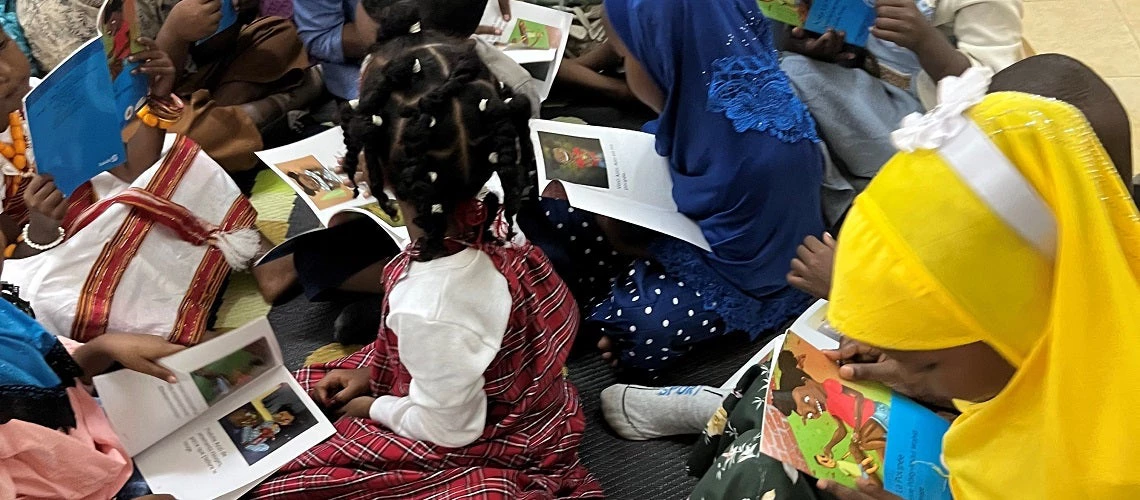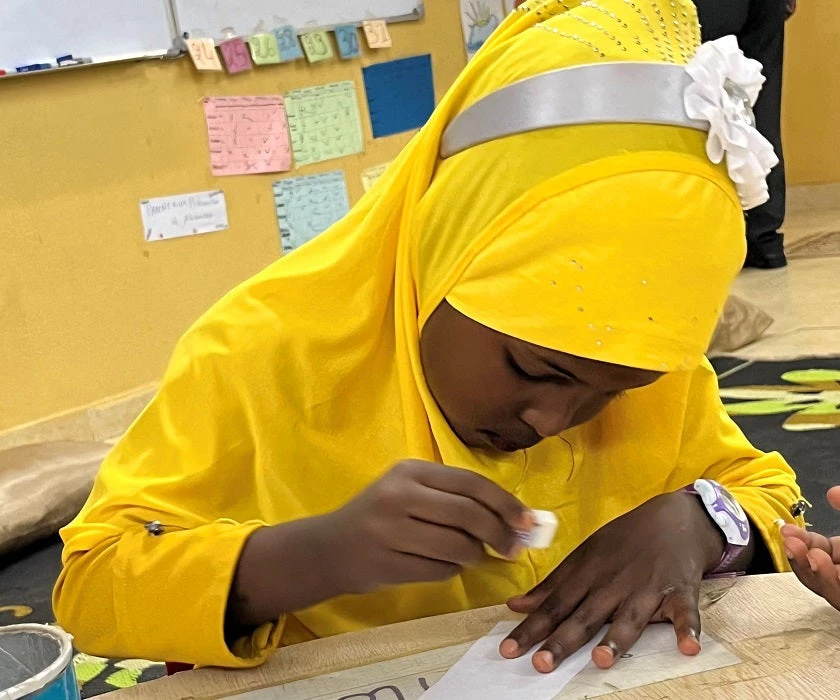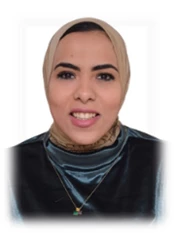 A group of students reading at school in Djibouti. (Photo: Bridget Sabine Crumpton)
A group of students reading at school in Djibouti. (Photo: Bridget Sabine Crumpton)
Like many parents globally, Djiboutian families are preparing their children for the start of the new school year. An increasing number of five-year-old girls and boys will have the chance to go to preschool, gaining the best start in life. Within the classroom’s colorful walls, learning is not confined to textbooks and rigid tasks. Instead, the preschool curriculum is based on learning through play and building life skills. The play approach enables young children to absorb knowledge easily. It nurtures vital cognitive skills, such as problem-solving and language development, and socio-emotional skills in collaborating with others and self-regulation – all invaluable skills for life and being ready to start primary school. Investing in preschool education is a pillar of the Government of Djibouti’s transformative education reform to improve learning and equip young children with skills for life.
During recent school visits, principals and teachers were eager to share their experiences of the impact of preschool. One teacher reflected, “In September, new students have difficulties in organizing themselves and sharing with their peers. Nine months on, [however], they can engage in group activities and perform individual tasks. They acquire the basics of French (the language of instruction), which gives them a head-start when they start primary school.”
School principals were unanimous in their support. “Students from preschool come better prepared for primary school,” said one principal. “With less than one in five students attending preschool, we divide them across all primary school classes so they can act as role models to other students and support students and teachers in diverse learning tasks.” Emerging evidence also confirms the benefits of preschool education on higher learning outcomes. But it is perhaps the vocal demand from parents for preschool expansion that testifies best to its benefits.

This is why preschool investment has become a political priority in Djibouti, a small and dynamic nation strategically located at the entrance of the Red Sea. The Ministry of National Education and Technical Training (MENFOP) is promoting strategies for rapid expansion to all children aged five by 2030. The Expanding Opportunities for Learning Project (PRODA), together in partnership with the World Bank, the Global Partnership for Education, the Education Above All’s Educate A Child Program, is supporting MENFOP to lay the foundations of the preschool system and the success of children, especially vulnerable children, as they journey through the country’s education system.
The policy focus is on expansion with quality, equity, and a standardized approach across providers. Central pillars include establishing quality standards and a quality assurance mechanism to regulate public and private provision and to track progress. The revision of the preschool curriculum is accompanied by competency frameworks, training, professional development, and continuous coaching of teachers to ensure that they have the right skills and support to encourage play-based learning.
Provision is targeted at rural areas, refugees, and vulnerable children where the return on investment is highest. Current results demonstrate the unprecedented development of the preschool system, notably a doubling in enrollment since 2016, although this rate is still low at 13.6%. There was also a rapid expansion of the preschool workforce, expanding by 50% in 2023, and the construction and equipment of over 30 additional preschool classrooms, which facilitated the enrollment of over 800 children.
MENFOP’s investment in the groundwork for a quality preschool system is an investment in Djibouti’s human capital, as it will result in the improvement of the academic and socio-economic future of its young people. Partnership with the Government, development partners, private sector, and civil society will be pivotal to shift the needle so that not just some, but all young children have the opportunity to attend preschool in 2030.
For more information on Djibouti or the Expanding Opportunities for Learning Project, contact: Djibouti_Eduteam@worldbank.org



Join the Conversation